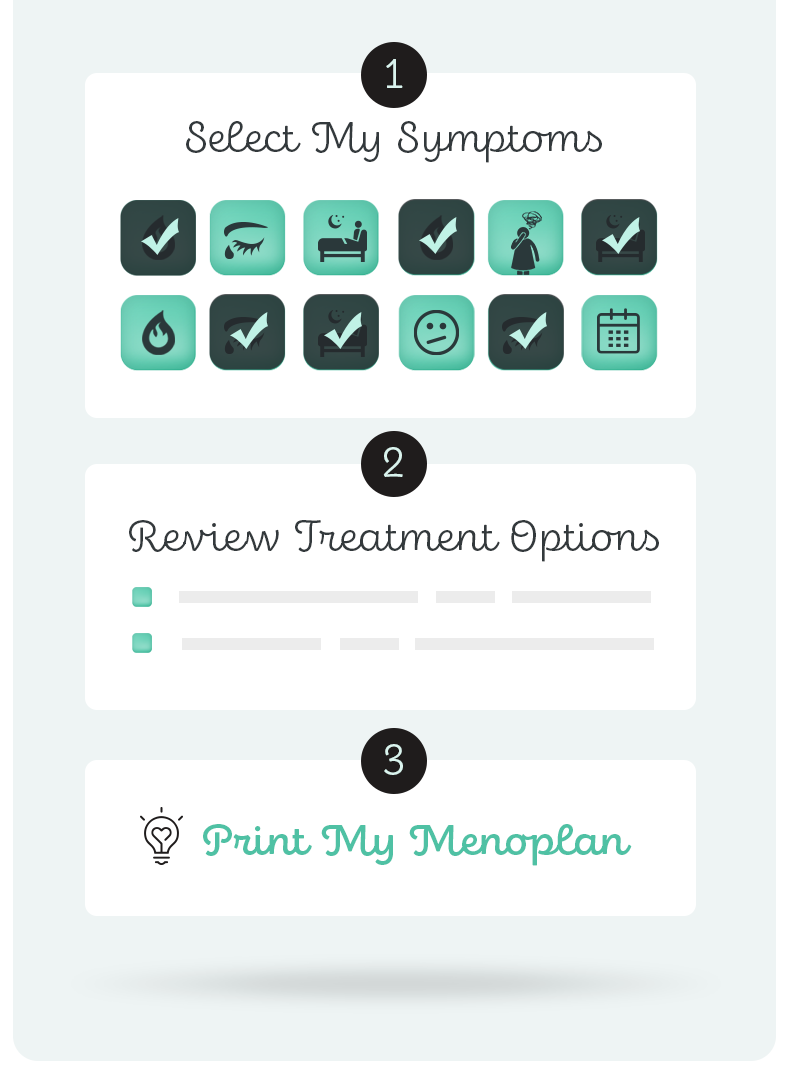About
STRATEGIES FOR TALKING WITH YOUR DOCTOR
These strategies can help you get your questions answered when you talk to your doctor about perimenopause/menopause.
- Pick a doctor who will listen to your concerns and honor your preferences.
- Be prepared. Set your agenda for the visit. Make a written list of your symptoms and questions with the most important ones first.
- Share your symptoms and questions list at the beginning of the visit. Your doctor may see something that is low on your list that they think is important.
- Use the My Menoplan tool and print it. Show it to your doctor to guide the discussion.
- Be clear about your goals for the visit. For example – “I came today because I’m having hot flashes that are keeping me awake all night. I’m getting really grumpy. I want to talk about my options.”
- Bring along a friend or family member who can help you review what was said.
- Take notes or ask the person with you to take notes.
- If the conversation is going to be complex, ask to record it. Most smart phones have a record option. This is a great way to be sure you get all the information. It may surprise your doctor, but they should be open to this.
- Repeat back what you heard – “OK, so you are saying hormones are not a good idea for me”.
- Ask for a written after-visit summary.
- Find out how you can see your medical record in the patient portal. The record has your test results, diagnoses, treatment plans, summaries of your visits and medications.
- If your questions aren’t answered in one visit, schedule another – or:
- Keep the conversation going. Email your questions or let your doctor know your progress using the patient portal. For example – “I’ve on been on this medication for three weeks and I don’t see a change”.


